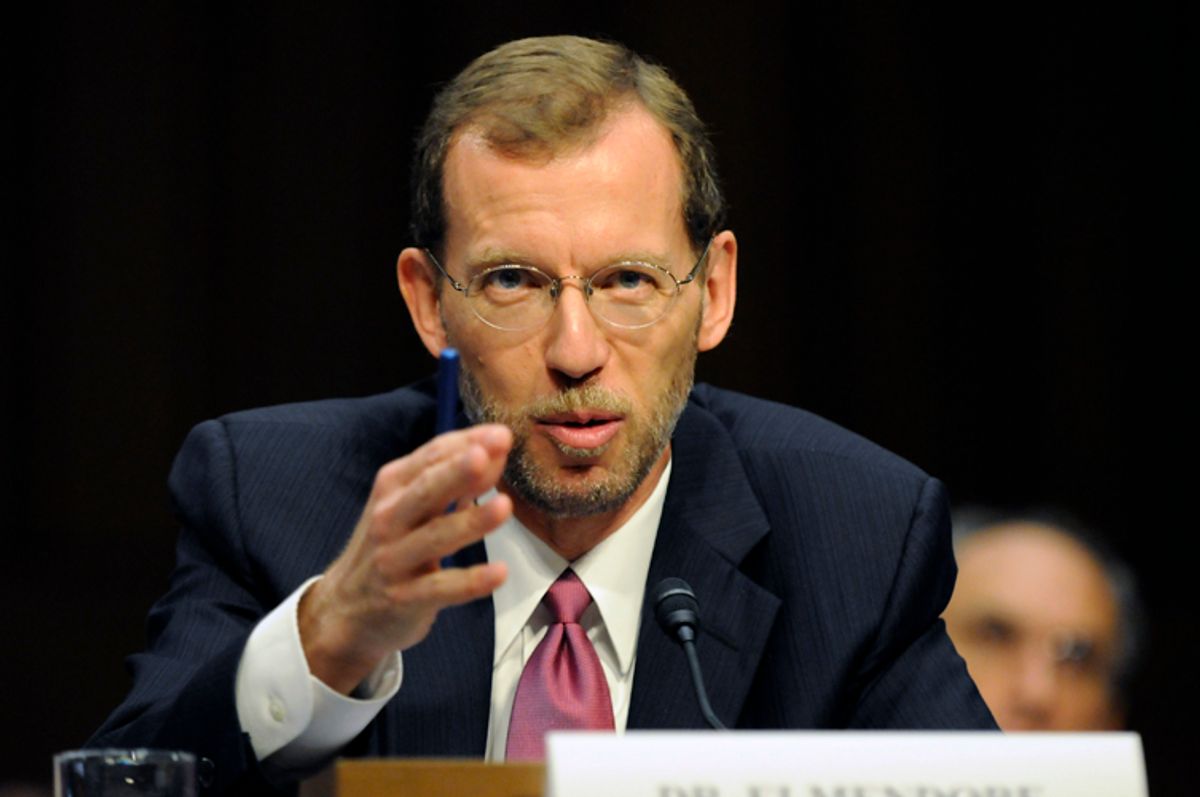In its first meeting since President Obama urged the deficit supercommittee to incorporate his $447 billion jobs plan into its plans, Democrats and Republicans on the panel today achieved a rare degree of bipartisan consensus. They almost totally ignored it.
I heard Obama's jobs plan mentioned exactly once, by Rep. Chris Van Hollen, D-Md., who undermined the proposal by linking it to the bipartisan, Simpson-Bowles deficit reduction plan, which says little about job creation. Rep. Fred Upton, R-Mich., did mention Obama's speech ("We were on our feet when the president talked about entitlement reform,") but not jobs. As Congressional Budget Office chief Doug Elmendorf went on to sketch the stark choices facing the committee, the president jobs agenda was forgotten.
Elmendorf's testimony defined the Washington consensus that has marginalized the president's policy options. Most the discussion focused on just how much Social Security, Medicare and Medicaid would have to be cut. While the hearing was supposed to cover "drivers of debt," the foreign wars that account for about a third of the debt also went largely unmentioned. The printed version of Elmendorf's testimony made no effort to separate out defense spending for the purposes of analysis. War expenditures, in his presentation, are included (along with a lots of other things) under the bloodless category known as "non-interest spending."
The Democrats preferred to focus on Bill Clinton more than Obama, noting several times the contrast between Clinton's last year in office when the CBO projected a future $5.6 trillion surplus and the present. Van Hollen did get Elmendorf to acknowledge that letting the Bush tax cuts expire would make the committee's job about $4 trillion easier while not mentioning that Obama signed an extension preventing them from expiring.
All the committee members, perhaps chastened by Congress's single-digit approval ratings, did their best to sound nonpartisan. Sen. Rob Portman, R-Ohio, focused on the costs of Obama's healthcare reform program, but he didn't call it "Obamacare," and Elmendorf did not give him much comfort, saying at one point the program should reduce the deficit. And when Sen. Jon Kyl, R-Ariz., expressed a determination to exorcise dat old debbil "waste fraud and abuses," Elmendorf gently pointed out that the potential savings were inconsequential in terms of the committee's work.
Elmendorf, while doing his green-eye-shade best to avoid sounding political, did provide some support for the president, who was traveling to Ohio to stump for his plan. He endorsed a basic tenet of the president's proposal, saying "the most effective" approach for job creation would be to cut taxes and increase spending in the near-term and implement deficit cutting measures in the medium term. Elmendorf also said the CBO regards reductions in payroll taxes, a central part of the Obama proposal, as the single most effective way to stimulate the economy quickly.
Last week Obama implored a joint session of Congress to "Pass this jobs bill now," but the sound did not reach the Hart Senate Office Building down the street. Indeed, the Democrats on the supercommittee gave the embattled president less support than CBO's superwonk did.



Shares